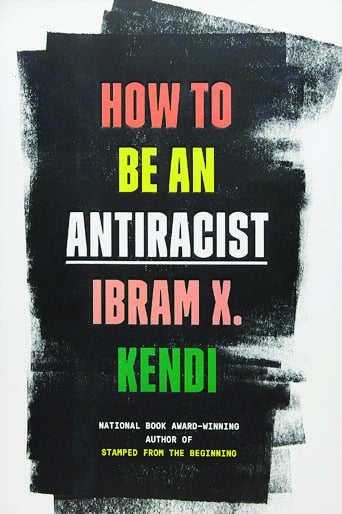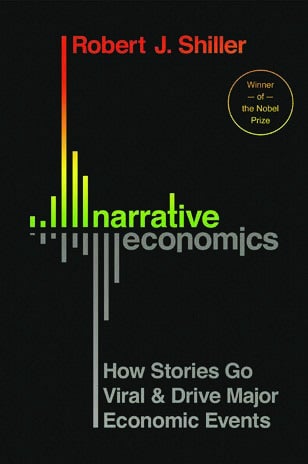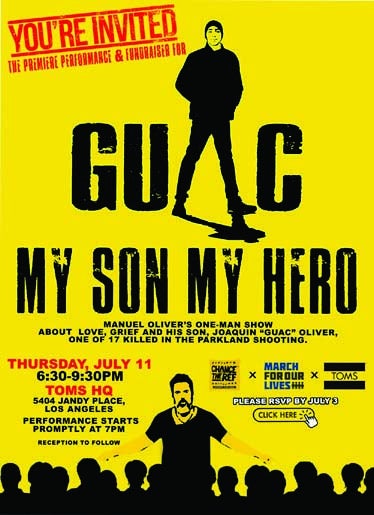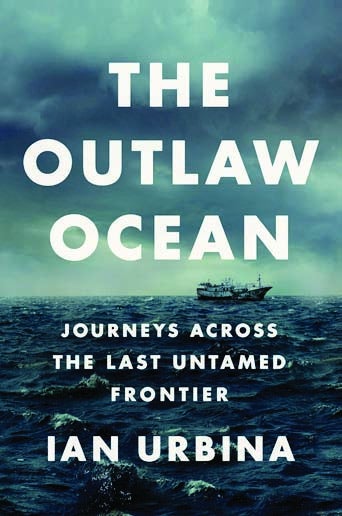This fall, three book talks and a one-man-show delved into uncomfortable realities. The Alma and Joseph Gildenhorn Book Series welcomed Ibram Kendi, whose book examines race and personal vulnerability, and Robert Shiller, who looks at the power of stories to move markets. The Michelle Smith Arts & Culture Series hosted Manuel Oliver, an artist and activist who turned his son’s death at the hands of a school shooter in Parkland into a stage play on gun violence and reform. And the Aspen High Seas Initiative and Conservation International invited Ian Urbina to talk about the rogue lawlessness of the sea. aspeninstitute.org/events
How to be an Antiracist
 Ibram X. Kendi, founding director of the Antiracist Research and Policy Center at American University
Ibram X. Kendi, founding director of the Antiracist Research and Policy Center at American University
“What’s the problem with being ‘not racist’? It is a claim that signifies neutrality: ‘I am not a racist, but neither am I aggressively against racism.’ But there is no neutrality in the racism struggle. The opposite of ‘racist’ isn’t ‘not racist.’ It is ‘antiracist.’ What’s the difference? One endorses the idea of a racial hierarchy as a racist or racial equality as an antiracist. One either believes problems are rooted in groups of people, as a racist, or locates the roots of problems in power and policies, as an antiracist. One either allows racial inequities to persevere, as a racist, or confronts racial inequities, as an antiracist. There is no in between space of ‘not racist.’ The claim of ‘not racist’ neutrality is a mask for racism.”
Narrative Economics
 Robert J. Shiller, Nobel Prize–winning economist
Robert J. Shiller, Nobel Prize–winning economist
“Narrative economics demonstrates how popular stories change through time to affect economic outcomes, including not only recessions and depressions, but also other important economic phenomena. The idea that house prices can only go up attaches to the stories of rich house flippers seen on television. The idea that gold is the safest investment attaches to stories of war and depression. These narratives have a contagious element, even if their attachment to any given celebrity is tenuous.”
Guac: My Son, My Hero
 Manuel Oliver, painter and visual artist
Manuel Oliver, painter and visual artist
“In the United States, 100 people die per day because of gun violence. Every 15 minutes, a mother, a father, a wife, a husband suffer. My name is Manuel Oliver. I am Joaquin Oliver’s dad. His poems call him Guac. He was surrounded by flowers, love, music, his family, and he was the most amazing person that I have ever met. This is beyond schools, beyond Parkland. When you lose a son, what do you do? You do what you do best. I’m not a politician. I’m an artist. I paint.”
The Outlaw Ocean
 Ian Urbina, Pulitzer Prize–winning journalist
Ian Urbina, Pulitzer Prize–winning journalist
“Fully half of the world’s peoples live within a hundred miles of the ocean, and merchant ships haul 90 percent of the world’s goods. More than 56 million people globally work at sea on fishing boats and another 1.6 million on freighters, tankers, and other types of merchant vessels. Yet for most of us, the sea is simply a place we fly over, a broad canvas of darker and lighter blues. Though it can seem vast and all-powerful, it is vulnerable and fragile in part because environmental threats travel far, transcending the arbitrary borders that mapmakers have applied to the oceans over the centuries. The ocean is Earth’s last frontier, which has led to unrestrained criminality on the waves ranging from piracy to human trafficking to environmental crimes.”